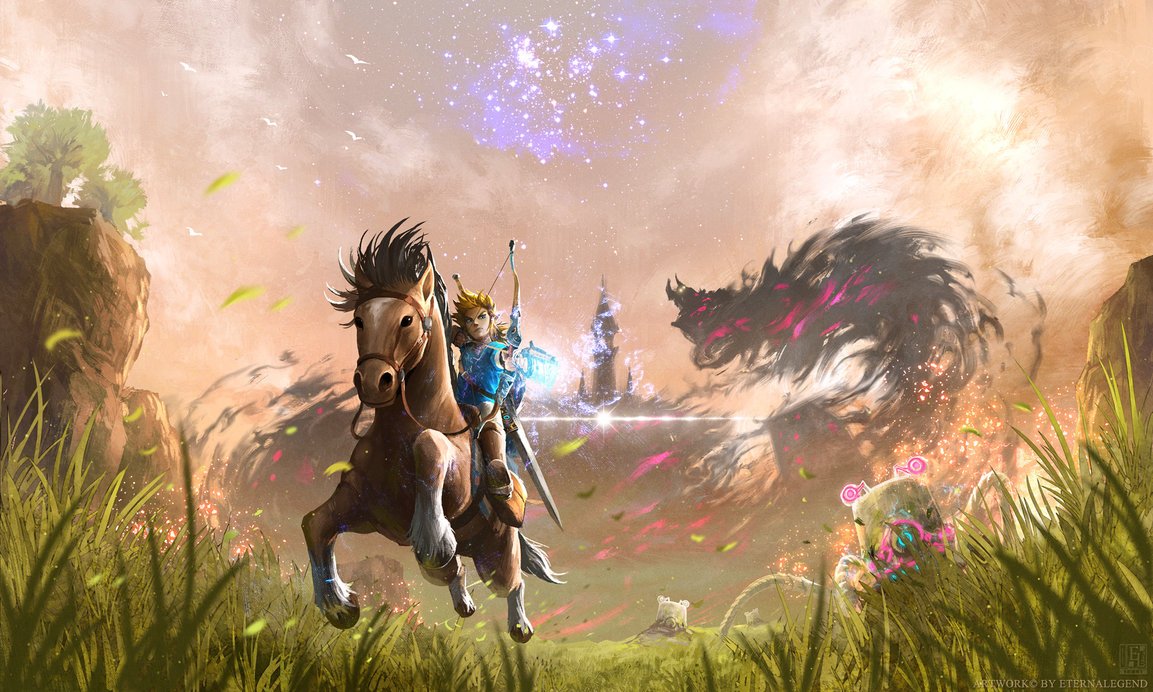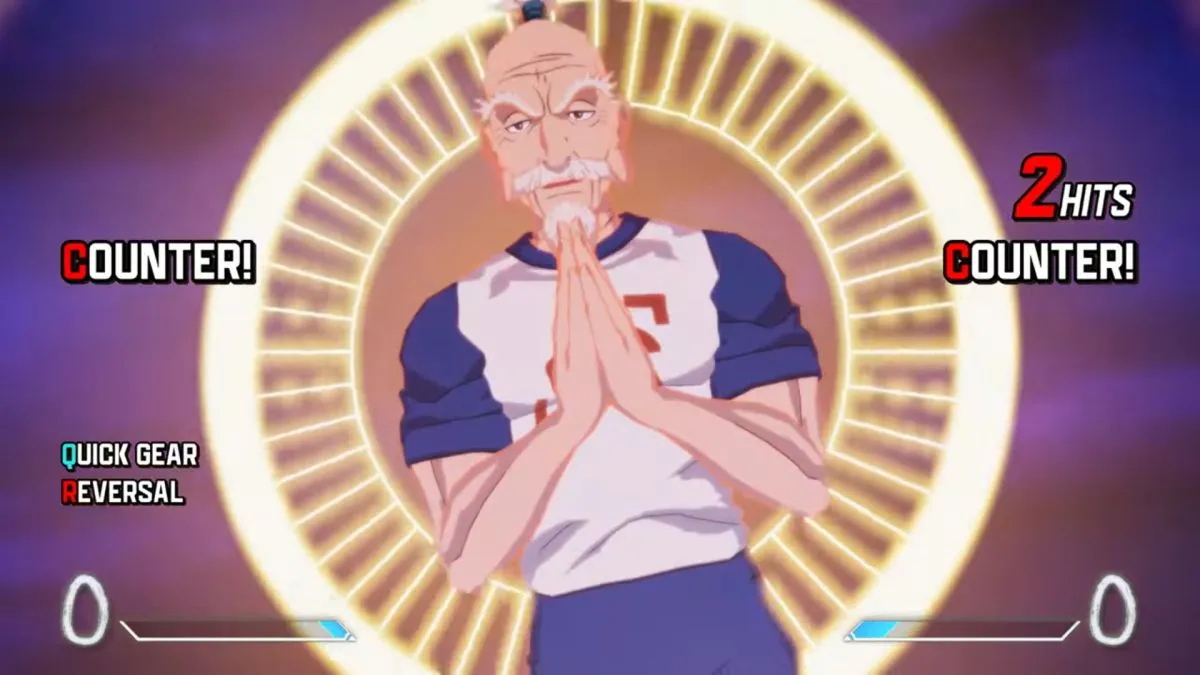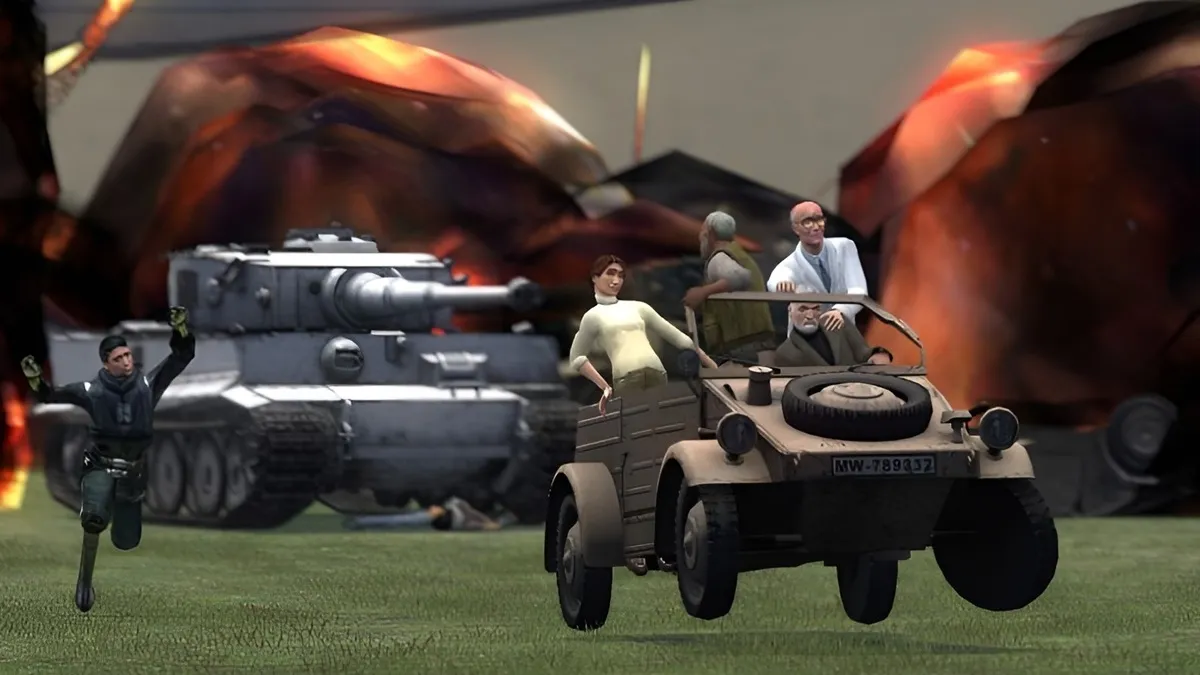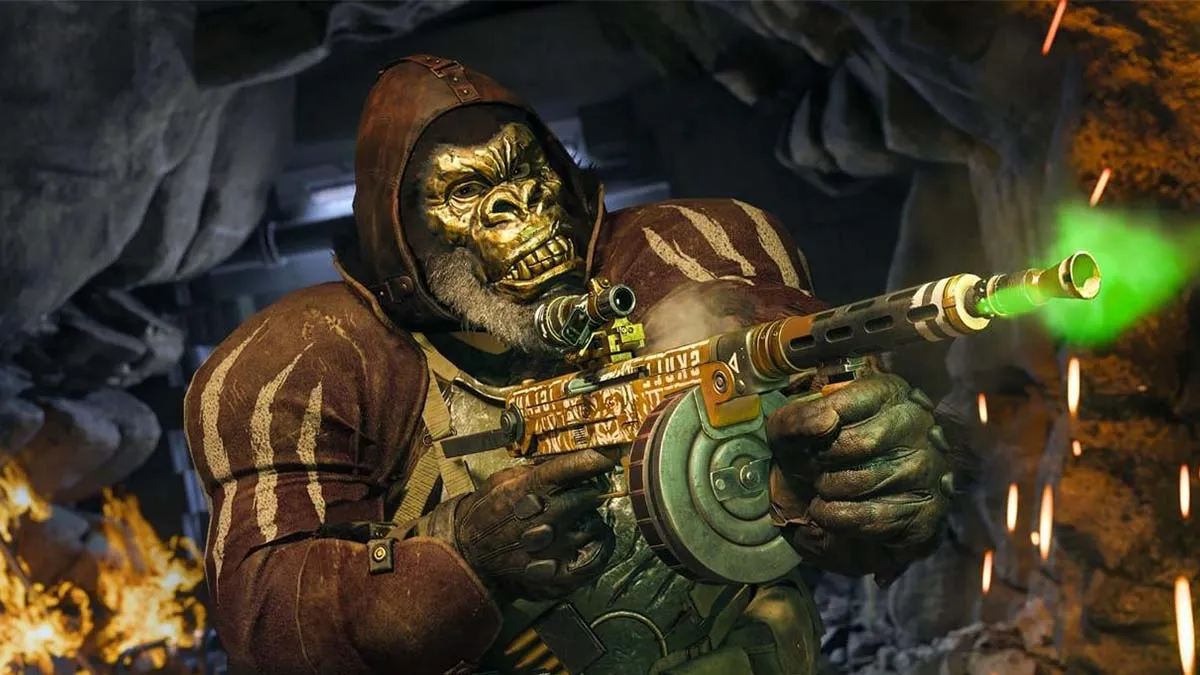A disasterpiece, if you will
[Header courtesy of EternaLegend]
Basically everyone and their mother agrees that Breath of the Wild is an incredible game. At the same time, everyone and their mother hates Breath of the Wild. How is that possible?
This is something I’m going to dub the “Zelda Effect.” Hype begets hype and people get wildly different expectations of what the latest entry in the venerable series should be. Along with that, a lot of people become contrarians just to spite people who enjoy something they don’t.
Mostly, though, what defines a good game? Can you outright call any Zelda title terrible or even bad? People like different things about each entry and the best aspect of the series is Nintendo’s willingness to reinvent the wheel all the time. Zelda was endured because most entries aren’t repeats of the last.

That isn’t to say there wasn’t a formula to puzzle and dungeon design, but the central mechanics for interaction with the game world are almost always different in each Zelda entry. Link to the Past introduced the idea of shifting between mirror dimensions; Link’s Awakening put an emphasis on more fantastical elements along with making the game world more portable friendly; Ocarina of Time brought in musical elements and set-piece moments; Majora’s Mask flipped the script by swapping out Zelda and Ganon and setting Link on personal journey. I could go on and on, but the idea should be clear.
Fans will immediately point to how Zelda has become more linear over the years. Before Breath of the Wild, a lot of these games were becoming guided tours with very little in the way of player interpretation. One need only look at Skyward Sword to see how closed off the game had become, but does that mean Skyward wasn’t a Zelda title?
I know our very own Jonathan Holmes actually prefers Skyward Sword to Breath of the Wild. His reasoning makes sense: he doesn’t have the time to get lost in a virtual world. A friend of mine is similar; he has a busy life with his job and fiancée occupying the majority of his time. When he sits down to play a game, he wants to be thrust into a story that excites him and lets him live out a fantasy he can’t do in the real world.
For him, another long-time Zelda fan, Breath of the Wild steps away from the aspects of the series he fell in love with. As with a lot of millennials, his first foray into Nintendo’s fantasy role-playing series was Ocarina of Time. What drew him in was the dynamic between Link, Zelda, and Ganon and the dungeon designs. He liked having a clear goal, a set path, and a crazy story to partake in. He is not a fan of how open ended the original game is.

While Skyward Sword went too far with its linear design for him, his biggest gripe was with the motion controls. He could have gotten on with the game if Nintendo just provided an option for a more traditional control scheme, but that wasn’t on the table. That doesn’t mean he thinks Skyward Sword is bad, just that it’s not for him. I can’t disagree with him, either, despite enjoying the game.
As for me, I love the freedom Breath of the Wild grants the player. After playing games for so many years that barely have faith in the intelligence of their target audience, it is super refreshing to see a game basically tell me, “Figure it out for yourself.” In my personal life, I derive enjoyment from discovering how things work by getting hands on. I don’t like when people lecture me about the “proper” way to do something, much like what Zelda did with its constant tutorials.
That is only one aspect of why some people may dislike Nintendo’s latest installment. A quick glance at Amazon user reviews for Breath of the Wild shows that there isn’t just one factor people agree on. Some are upset at the lack of story while others take issue with the weapon degradation system or the “needless” padding of the open world itself. As someone who really liked Breath of the Wild, I can’t say I agree with them, but I at least understand their viewpoint.
Gaming can be escapism in a more interactive form. A lot of people aren’t looking for a deeper connection with their entertainment or for games to even challenge them all too much. They want to throw away their baggage from work and life and get away from that nonsense for a few hours. Others want to just dig into an exciting and engrossing plotline that puts them at the center of the action. Others, still, are just marveled by how far technology has come.

So what, then, makes a good game? Breath of the Wild most definitely lacks a coherent story, so fans looking for narrative are going to leave disappointed. Skyward Sword virtually has no exploration aspect, so fans with a more adventurous slant find it closed off. Twilight Princess is essentially a blockbuster movie, so fans who value mind-bending puzzles get nothing out of it.
It seems that with regards to the 3D Zelda games, at least, fans have a very specific idea of what they personally want. They remember the experience of playing their first Zelda and expect every other game to replicate that. This is putting aside how repetition leads to diminishing returns, but it also disregards that Nintendo has never been cautious about how it makes new Zelda entries.
As a matter of fact, the 2D Zelda games are actually safer from a design standpoint. A lot of them recycle concepts between each other and are more like refinements to the formula instead of dramatic overhauls. A Link to the Past set the stage and Link’s Awakening made it weird, but then both Oracle games play like singular aspects of A Link to the Past ripped apart and put onto the Game Boy.
The Minish Cap is one of the best games in the series, but even that feels like a tweak of the mirror realm mechanic introduced in A Link to the Past. Shrinking Link down to the size of a Picori is functionally the same as using the mirror to teleport to the past, just that Nintendo smartly decided to base boss characters off of standard enemies while Link is shrunken down. The very first dungeon makes an otherwise harmless enemy (Chu Chu) into a huge threat both literally and figuratively.

For as much flak as they receive, the DS Zelda games are some of the most unique in the entire series. Nintendo mostly wanted to change up how items were utilized throughout the adventure. Twilight Princess had the largest arsenal, but a lot of the items only got two or three uses and some (the slingshot) were completely redundant. By limiting the number of acquirable weapons and introducing touch controls, Nintendo was hoping that fans would be excited at the prospect of seeing old classics in a new light.
That didn’t pan out and certainly became contentious when Skyward Sword went for 1:1 motion controls. I still don’t understand all the complaints people lobby at the game, but I think the general idea can be summed up as, “This isn’t what I want from Zelda.” That is fine, too, as some people just want the same old thing over and over (just look at the Fast and Furious franchise).
Twilight Princess, though, does provide basically the same thing as Link to the Past, but people then find it to be derivative or “uninspired.” A lot of people claim that Nintendo was trying too hard to cater to fan expectations, but can you blame them after the backlash Wind Waker initially received? They included everything people claim makes a good Zelda title, but it wasn’t received that way.
So really, are people claiming Breath of the Wild is the greatest achievement of digital entertainment correct? Yes, they are. Are the people claiming that Breath of the Wild is a colossal failure correct? Again, yes they are. Based on what you expect from a video game, Breath of the Wild either fulfills its role or gloriously misses the mark.

You can muse all you want about game theory or design philosophy, but it comes down to people being complex individuals. Some people like “bad” things and others dislike “good” things. As sad as it may be, not every “good” game will be popular and some “bad” games will become huge franchises. There can be a very specific place and time that a game exists in and only then is it “good” while a “bad” game may eventually come to be seen in a totally different light. To roast other people because they don’t follow your same logic is an exercise in futility.
So is there really any one way to make a truly “good” Zelda game? Absolutely not, but at least Nintendo will never stop trying to one up itself.




